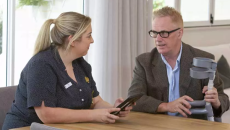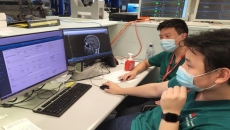Lynne Minion
Researchers have developed a tiny, 3D-printed cell "cradle" to boost IVF success, with the treatment of cancer, diabetes, cystic fibrosis and spinal cord injury also advanced by the invention.
The Aged Care Royal Commission in 2021 found "the aged care system is well behind other sectors in the use and application of technology" and recommended government investment.
Telehealth company Coviu and clinical and practice management software provider MediRecords join Leidos in the ambitious project.
Following the success of the Personify Care platform in minimising readmissions after general surgeries, St John of God Murdoch Hospital is rolling it out to the specialist surgery wards.
The Australian Medical Association has claimed that “chronically poor” communication between general practitioners and hospitals is putting patient safety at risk, and called for the Victorian Government to fix the problem in the state's health system.
A request for tender by the Department of Health has caused alarm in the industry with its plan to shake up the nation's most successful digital health infrastructure project.
This week's Budget will boost digital uptake and cybersecurity, but doctors' groups say it failed to provide the funding the COVID-19 fatigued health system needs.
Fast, reliable and high capacity 5G mobile networks can deliver improved remote care and data analytics in Australia, but only a third of health businesses are harnessing the technology.
The government’s new cybersecurity bill could add millions of dollars to the budgets of hospitals already contending with the price of COVID-19.
The rollout of eTOC continues across the state, with eHealth NSW's head Dr Zoran Bolevich saying it improves clinical productivity and patient care.









